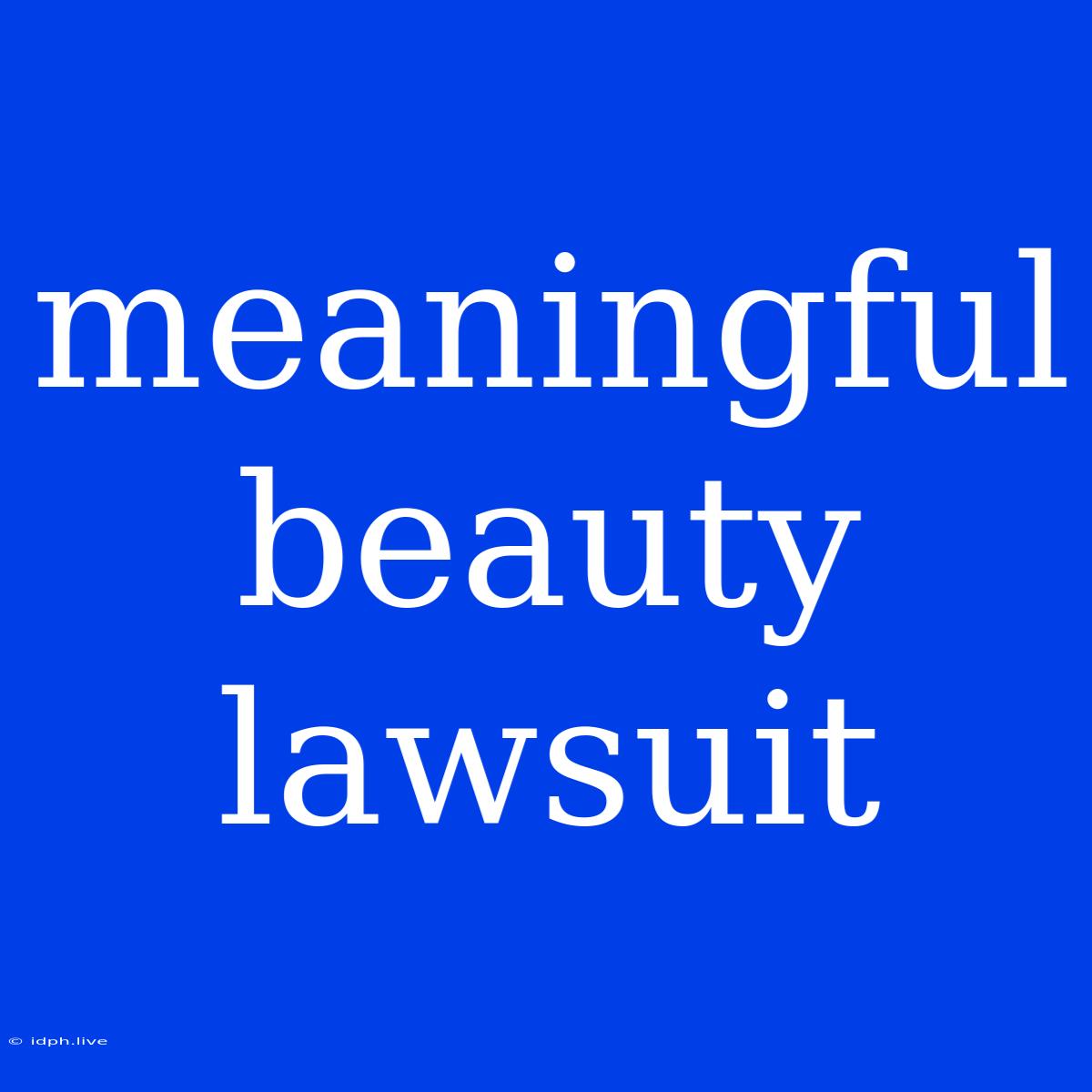Meaningful Beauty Lawsuit: A Deep Dive into the Controversy
The "Meaningful Beauty" lawsuit, filed in 2010, brought to light a significant issue in the cosmetics industry: the potential for misleading advertising. This article explores the details of the lawsuit, its impact on the beauty industry, and the lessons learned about consumer protection and product claims.
What was the Meaningful Beauty Lawsuit?
The lawsuit was filed against Meaningful Beauty, LLC by several consumers who alleged that the company's products, endorsed by Cindy Crawford, were falsely advertised and did not deliver the promised results. The core of the complaint centered around the claim that the products contained a proprietary "Meaningful Beauty" ingredient that could reverse aging and significantly improve skin appearance.
Key Allegations:
- Misleading claims: The lawsuit accused Meaningful Beauty of making misleading claims about the effectiveness of their products, specifically regarding their ability to reverse the signs of aging.
- Lack of scientific evidence: The plaintiffs claimed that there was no scientific evidence to support the company's claims about the "Meaningful Beauty" ingredient.
- Unfair and deceptive practices: The lawsuit alleged that Meaningful Beauty's advertising campaign was designed to mislead consumers into believing that the products were more effective than they actually were.
The Outcome of the Lawsuit
While the lawsuit faced several legal hurdles and was ultimately dismissed in 2012, it had a significant impact on the beauty industry.
Key Outcomes:
- Increased Scrutiny of Advertising Claims: The Meaningful Beauty lawsuit spurred increased scrutiny of advertising claims in the cosmetics industry, particularly regarding claims related to aging and skin rejuvenation.
- Emphasis on Scientific Evidence: The lawsuit emphasized the importance of providing scientific evidence to support product claims.
- Strengthened Consumer Protection: The lawsuit contributed to a greater awareness of consumer rights and protections against misleading advertising in the beauty industry.
Lessons Learned: Moving Towards Transparency
The Meaningful Beauty lawsuit serves as a reminder of the importance of transparency and ethical marketing practices in the beauty industry. Here are some key takeaways:
- Support Claims with Evidence: Companies should provide scientific evidence to support their claims about product effectiveness.
- Clearly Communicate Ingredients: Companies should clearly list all ingredients and their functions, avoiding vague or misleading terms.
- Honest and Realistic Expectations: Companies should set realistic expectations about what their products can achieve, avoiding exaggerated claims.
- Consumer Education is Key: Consumers should be empowered to understand the science behind beauty products and be critical of claims made in marketing.
Conclusion
The Meaningful Beauty lawsuit, while ultimately dismissed, served as a crucial wake-up call for the beauty industry. It highlighted the need for greater transparency, accountability, and a focus on scientific evidence in product claims. As consumers become increasingly savvy about the products they use, ethics and truthfulness will be paramount in building trust and fostering long-term success in the beauty industry.

